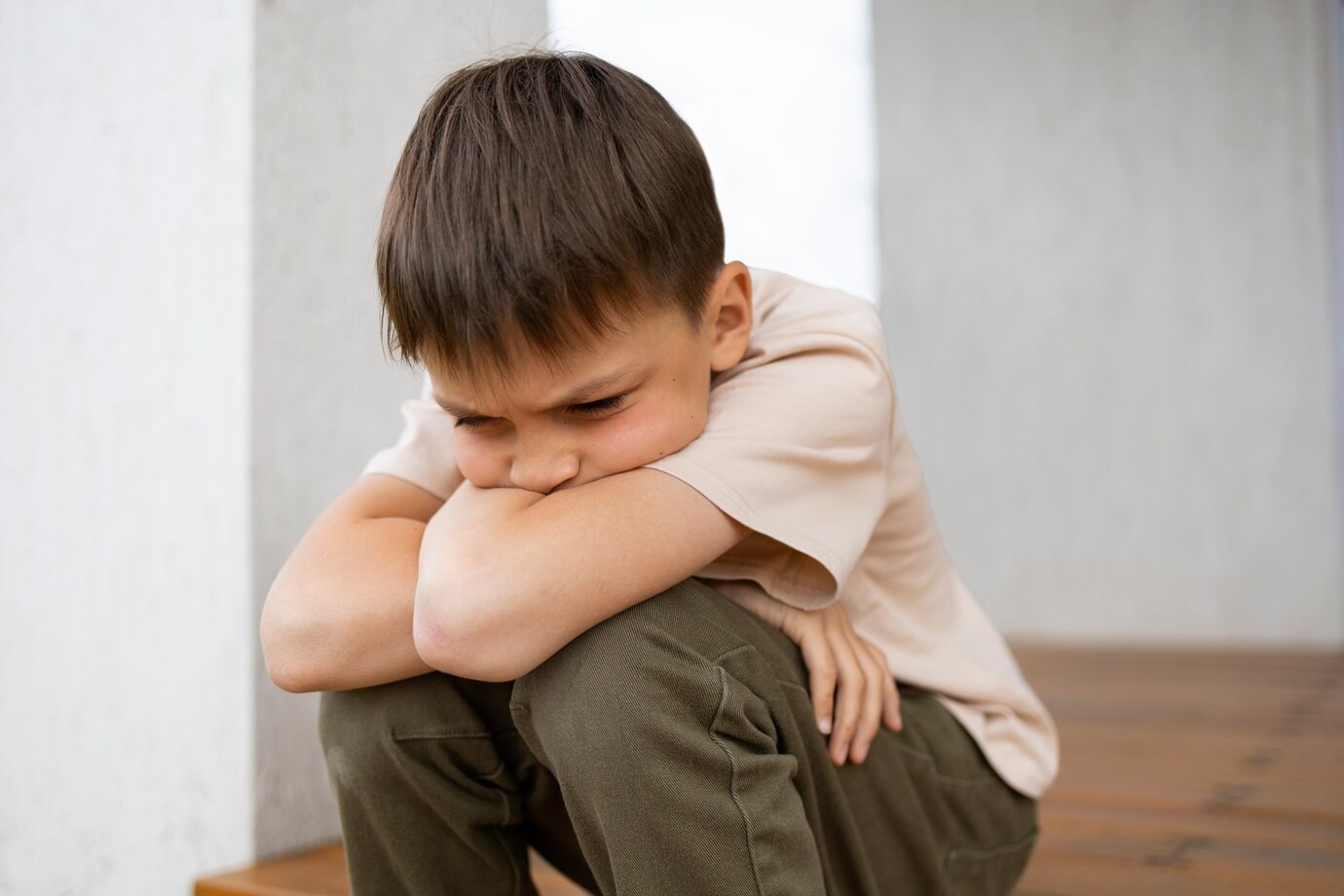Marah adalah emosi yang wajar dirasakan oleh orang dewasa maupun anak-anak. Pada anak-anak, marah umumnya ditunjukkan dengan berteriak, melempar barang, mengamuk dan menangis. Sebenarnya, apa penyebab anak mudah marah dan bagaimana mengatasinya?
Penyebab Marah pada Anak
Marah pada anak adalah hal yang wajar. Anak juga dapat merasakan emosi layaknya orang dewasa seperti sedih, kecewa dan marah.
Jika orang tua mendapati anak marah, sebaiknya jangan membalas amarah anak dengan membentak atau berbalik memarahinya. Kondisi ini justru dapat menyebabkan anak tumbuh jadi pemarah dan beranggapan bahwa amarah hanya dapat diselesaikan dengan emosi yang sama.
Anak yang suka marah dapat disebabkan oleh berbagai hal, tergantung dari usia dan kematangan anak. Beberapa penyebab anak mudah marah antara lain:
Usia bayi (0-18 bulan): Pada usia ini anak terkadang menunjukkan emosi marah atau menangis ketika sedang lapar, berisik dan merasa kelelahan. Di usia ini, menangis adalah cara berkomunikasi bayi sehingga anak-anak mengungkapkan apa yang dirasakan (kelelahan, lapar, berisik) dengan menangis.
Usia balita (18-36 bulan): Di usia ini, anak-anak mulai membutuhkan perhatian lebih sehingga mudah menangis jika tidak mendapat perhatian yang diinginkan. Penyebab lain anak mudah marah di usia ini antara lain: anak tidak mau berbagi, permintaannya tidak dituruti, tidak bisa mengungkapkan dengan kata-kata apa yang diinginkan dan sulit mengendalikan perasaannya.
Usia preschooler (3-5 tahun): Di usia ini anak-anak marah karena belum bisa mengendalikan emosinya. Anak-anak juga belum pandai mengungkapkan dengan kata-kata saat frustasi dan marah. Anak usia balita juga sedang belajar cara berbagi dan masih belum bisa memahami bahwa orang lain memiliki ide yang berbeda. Kemarahan anak dapat ditunjukkan dengan kemarahan verbal atau sikap agresif.
Usia 6-8 tahun: Anak- anak bisa marah ketika merasa ada yang tidak adil, ketika mereka ditolak, dihukum, didiskriminasi atau disalahpahami. Mereka menunjukkan kemarahan dengan menyakiti dan mengintimidasi orang lain dan menggunakan kata-kata untuk menyakiti.
Baca Juga: Ketahui Dampak Sering Marah Sambil Berteriak pada Anak Remaja
Cara Menghadapi Anak-Anak yang Mudah Marah
Beberapa cara yang bisa Anda lakukan untuk menghadapi anak yang mudah marah antara lain:
1. Kenali penyebab anak marah
Ketika melihat anak marah, hal yang pertama kali perlu dilakukan adalah mengidentifikasi penyebab kemarahan anak. Anak bisa saja marah-marah karena lapar, merasa tidak enak badan, memiliki masalah di sekolah atau di lingkungan pertemanannya.
Setelah mengenali penyebab marah pada anak dan mendengarkan semua keluhannya, Anda bisa memberi nasehat pada anak. Jelaskan pada anak bahwa meskipun marah adalah wajar, namun tidak perlu dilampiaskan dengan amarah yang tidak terkontrol, terlebih lagi dengan kekerasan seperti memukul, menendang atau membanting barang.
Baca Juga: Sering Marah-Marah hingga Merusak Benda, Waspada Kemungkinan Intermittent Explosive Disorder
2. Ajarkan cara mengelola kemarahan
Ajarkan anak mengenai cara menenangkan diri saat sedang marah. Anda dapat mengajarkannya latihan pernapasan atau mengajaknya ke tempat yang tenang agar lebih mudah untuk menenangkan diri.
Pada usia balita Anda bisa mengalihkan amarahnya dengan kegiatan lain yang ia sukai. Namun pada usia anak sekolah dasar, Anda bisa mengajak anak untuk menarik napas panjang lalu embuskan secara perlahan.
3. Berikan konsekuensi
Jika anak marah diikuti dengan sikap agresif, maka Anda bisa memberikan konsekuensi pada anak berupa time out atau mengambil hak istimewa anak. Dengan cara ini anak akan belajar bahwa perilaku kekerasan bukanlah perilaku yang bisa diterima dengan baik. Apabila anak melanggar dan mengulangi perbuatan ini di kemudian hari, maka ia perlu menerima hukumannya.
Marah adalah emosi yang wajar, namun tidak berarti marah bisa diikuti dengan tindakan kekerasan. Ketika anak marah, sebaiknya cari tahu terlebih dahulu penyebabnya, lalu tenangkan dirinya dengan latihan pernapasan.
Jika Anda kesulitan mengontrol emosi anak, Anda bisa berkonsultasi dengan ahlinya dengan cara mengunduh aplikasi Ai Care di Play Store atau App Store.
Mau tahu informasi seputar kehamilan, menyusui, kesehatan wanita dan anak-anak? Cek di sini, ya!
- dr Nadia Opmalina
Child Mind. Is My Child's Anger Normal?. Available from: https://childmind.org/article/is-my-childs-anger-normal/
Child Mind. Angry Kids: Dealing With Explosive Behavior. Available from: https://childmind.org/article/angry-kids-dealing-with-explosive-behavior/
Morin, A. (2021). 5 Signs Your Child Needs Help Managing Anger. Available from: https://www.verywellfamily.com/signs-youre-raising-an-angry-child-1094926
NHS. Helping your child with anger issues. Available from: https://www.nhs.uk/mental-health/children-and-young-adults/advice-for-parents/help-your-child-with-anger-issues/












